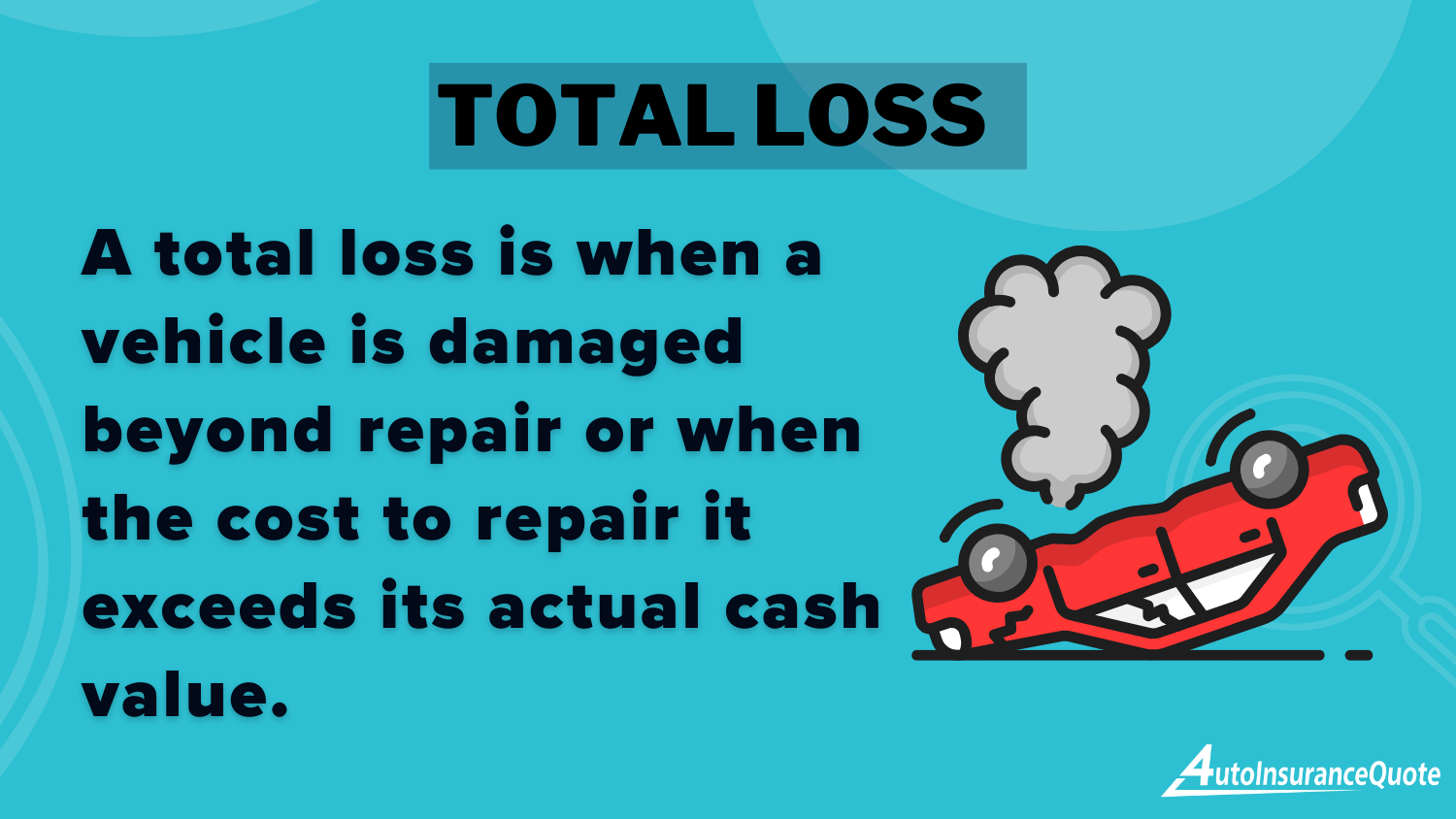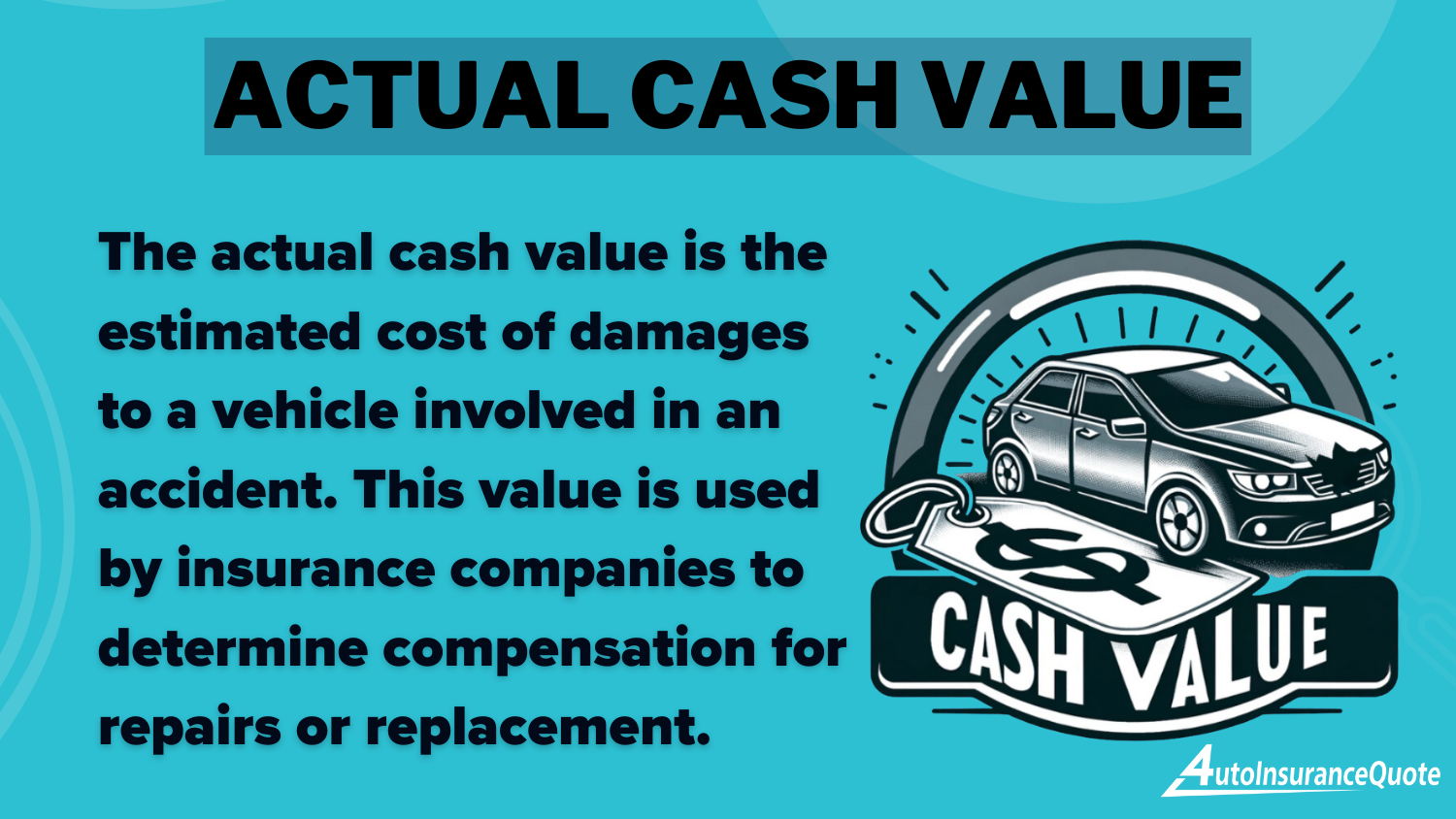How to Negotiate Your Car’s Value With Insurance Adjusters in 2025 (Follow These 5 Steps)
Learn how to negotiate your car's value with insurance adjusters effectively. By documenting damage, gathering quotes, and understanding the process, you can ensure a fair settlement from your insurance company. Use these strategies to protect your interests and achieve the best outcome.

Free Car Insurance Comparison
Compare Quotes From Top Companies and Save
Secured with SHA-256 Encryption
Brandon Frady
Licensed Insurance Agent
Brandon Frady has been a licensed insurance agent and insurance office manager since 2018. He has experience in ventures from retail to finance, working positions from cashier to management, but it wasn’t until Brandon started working in the insurance industry that he truly felt at home in his career. In his day-to-day interactions, he aims to live out his business philosophy in how he treats hi...
Licensed Insurance Agent
UPDATED: Jan 21, 2025
It’s all about you. We want to help you make the right coverage choices.
Advertiser Disclosure: We strive to help you make confident auto insurance decisions. Comparison shopping should be easy. We are not affiliated with any one auto insurance provider and cannot guarantee quotes from any single provider.
Our insurance industry partnerships don’t influence our content. Our opinions are our own. To compare quotes from many different companies please enter your ZIP code on this page to use the free quote tool. The more quotes you compare, the more chances to save.
Editorial Guidelines: We are a free online resource for anyone interested in learning more about auto insurance. Our goal is to be an objective, third-party resource for everything auto insurance related. We update our site regularly, and all content is reviewed by auto insurance experts.
UPDATED: Jan 21, 2025
It’s all about you. We want to help you make the right coverage choices.
Advertiser Disclosure: We strive to help you make confident auto insurance decisions. Comparison shopping should be easy. We are not affiliated with any one auto insurance provider and cannot guarantee quotes from any single provider.
Our insurance industry partnerships don’t influence our content. Our opinions are our own. To compare quotes from many different companies please enter your ZIP code on this page to use the free quote tool. The more quotes you compare, the more chances to save.
On This Page
Knowing how to negotiate your car’s value with insurance adjusters can help you secure a fair settlement. If you’re dealing with a low initial offer, pushing back with solid evidence can make all the difference.

Understanding what is the claims adjuster’s role in the auto insurance claims process is key to successfully navigating negotiations. Collect data such as repair estimates and market comparisons, and file necessary complaint forms with your state insurance office.
Enter your ZIP code above to find out if you’re getting the best deal on car insurance.
- Step #1: Exchange Info – Exchange names and insurance details
- Step #2: Snap Photos – Shoot from all angles
- Step #3: Get a Police Report – Get a copy for your records
- Step #4: Compare Estimates – Check a few repair shops
- Step #5: Take Notes – Keep track of key discussions
5 Easy Steps to Negotiate Your Car’s Value With Insurance Adjusters
While negotiating the value of your car with insurance adjusters might seem daunting, it does not have to be. Check these five easy steps that will aid in making your case assertively, support that case with the evidence you need, and get the settlement you deserve.
Step #1: Exchange Info
After ensuring everyone’s safety, exchange essential details with the other driver(s), including names, contact information, insurance details, policy numbers, driver’s licenses, license plates, and the make, model, and color of each vehicle involved, along with the accident’s location and time.
Can you negotiate the insurance payout for the totaled car? Knowing this can be crucial when handling claims. What happens if you don’t agree with the total loss adjuster? Understanding your rights can help in resolving disputes. Exploring how to negotiate total loss payout on Reddit can also provide helpful insights.
In caseyou necessitate assistance post-accident, picking the correct insurance supplier is similarly significant. Here are the monthly rate comparisons for minimum and full coveragefrom major insurance companies:
Auto Insurance Monthly Rates by Provider & Coverage Level| Insurance Company | Minimum Coverage | Full Coverage |
|---|---|---|
| $61 | $160 | |
| $44 | $117 | |
| $53 | $139 | |
| $30 | $80 | |
 | $68 | $174 |
 | $44 | $115 |
| $39 | $105 | |
| $33 | $86 | |
| $37 | $99 | |
| $22 | $59 |
In return for being provided with comprehensive information, such as understanding what happens if fault can’t be determined after a car accident, you can take the necessary steps, laying the groundwork for the smooth processing of your claims.
Step #2: Snap Photos
If your accident would need insurance support, snap clear photos as it is essential in documenting the scene, knowing how auto insurance claims work can make the process easier.
These simple tips on how to negotiate with the insurance company after a car accident, dealing with an insurance lowball offer on a totaled car, and learning how to negotiate with an insurance adjuster home will help make sure the process goes as smoothly as possible. Here’s how to make good photos:
- Capture the Entire Scene: Get wide-angle shots that review the general accident scene–all vehicles and any relevant road signs or traffic signals.
- Focus on Vehicle Damage: Zoom in on the damaged areas of all vehicles involved, ensuring that details like dents, scratches, and broken parts are precise.
- Document License Plate: Take a clear shot of each vehicle’s license plate for identification purposes.
- Photograph Vehicle Positions: Take photos showing how the vehicles are positioned in relation to each other and the road.
Ensuring you have detailed, clear photos from the scene can help support your case, simplify communication with your insurer, and expedite the claims process.
Photos can provide crucial evidence. They will impact how fault is determined or whether your insurance claim will be approved. The documentation of the specific scene will give you a huge advantage in your claim.
Step #3: Get a Police Report
One of the most important steps when starting a total loss car insurance claim after an accident is getting a police report. This document records the time and place of the incident, details about the parties involved, and a brief overview of what happened, which can be crucial for your claim process.
If you’re wondering, do you need to file a police report after an accident? It’s important to know that doing so may establish fault and often determines how insurance companies evaluate claims. It provides unbiased proof to support your side of the story during the claim process or in case of disputes.
Step #4: Compare Estimates
With the help of comparing the estimates from the different repair shops, you will be able to get the best quality service in a reasonable price. You are able to get a few repair shops examined to find out which suits your budget, your company, and when the restoration ought to be performed.
After an accident, don’t rush the process—take the time to compare detailed repair estimates from multiple shops. This helps you find a reliable service provider that offers quality work at a fair and competitive price.Eric Stauffer Licensed Insurance Agent
So, knowing that you can negotiate car insurance payout also assists you in getting a good deal. Similarly, knowing if you have to accept an insurance offer on a totaled car helps you make better decisions. Here’s an effective way to do that crucial step.
- Gather Multiple Estimates: One should get quotes from a minimum of three repair shops, so that in the end, one can compare prices against each other and services involved.
- Assess Reputation and Certifications: Check reviews, ratings, and verify that the shop holds relevant certifications to ensure quality.
- Review Pricing Details: Review scope of work, parts, and labor cost to figure out which will best meet your needs for the particular repair.
Comparing estimates from repair shops takes greater time, yet it will give you an informed idea of where to find reliable service at a competitive market price. Can I choose where to get my vehicle repaired after an accident? Absolutely, ensuring that every detail is considered in your estimates allows you to drive confidently, knowing you chose the best repair option for your needs.
Step #5: Take Notes
The detailed notes you take ensure that you stick to a very reliable record of conversations that would help you refer to agreements precisely, understand the next steps, and maintain consistency with the insurance providers or service centers.
Effective communication and thorough tracking are crucial for streamlined car insurance claims, policy updates, and repair negotiations.Justin Wright Licensed Insurance Agent
This will prevent misunderstandings and provide concrete evidence in disputes. Good notes also enable you to stay better organized, remember important points, and handle your case with more confidence. You can learn more about how auto insurance companies value cars.
Compare over 200 auto insurance companies at once!
Secured with SHA-256 Encryption
Essential Formulas for Calculating Insurance Amounts and Value
To calculate the actual cash value amount, consider coverage needs using Insurance Amount = Annual Income × Multiplier, typically 5-10 years of income. The formula for cash value of insurance in permanent policies is Cash Value = Initial Premium Paid + (Interest Rate × Accumulated Cash Value), showing growth over time.
For insurance commissions, the formula is Commission = Premium Amount × Commission Rate, where rates range from 5% to 15%. Calculating total cost involves Total Cost Value = Initial Premium + (Premiums Paid Annually × Number of Years), including any fees or benefits.
When understanding how insurers calculate your auto insurance rate, making a polite counteroffer involves first thanking the other party for their offer, clearly stating your terms, and briefly explaining your reasons to keep the negotiation constructive.
Confidently Negotiate Your Car’s Value with These Steps
When interacting with insurance adjusters, there are steps you can follow that can really help. You only need to take some basic steps when you have a chance, such as gathering the details, taking photos, making a police report, and considering how many car repair estimates you should get before choosing one to improve your odds of an equitable settlement.
Make sure you take notes even here so you can be sure to keep up and not get lost in the shuffle. With a little prep, you can tackle the negotiations easily and get the compensation you deserve without all the extra hassle.
Compare cheap car insurance quotes instantly with our free online comparison tool below—just enter your ZIP code to begin comparing.
Frequently Asked Questions
How do you negotiate with an insurance company for the best settlement value?
To negotiate effectively with an insurance company for a settlement, gather all documentation, understand the claim’s worth, and be prepared to counter their offer with detailed evidence supporting your requested amount.
How do you negotiate smartly using the 70/30 rule in negotiation?
The 70/30 rule suggests listening 70% of the time and speaking 30%, helping you understand the other party’s perspective and respond strategically.
Get the right car insurance at the best price — enter your ZIP code below to shop for coverage from the top insurers.
What is the best strategy to negotiate insurance claims with accuracy?
The best strategy for how to file an auto insurance claim involves understanding the claim process, preparing strong evidence, and being aware of industry standards to support your position effectively.
How do you calculate the value of an insurance agency for a buyout?
To calculate value, consider cash flow, revenue, client base, and market trends, often using a valuation formula like EBITDA (Earnings Before Interest, Taxes, Depreciation, and Amortization).
What are the five negotiation methods used in insurance claims?
Common methods include collaborative, competitive, accommodating, compromising, and avoiding—each suited for different claim situations and objectives.
How do you calculate insurance to value in negotiations?
Insurance-to-value calculations assess the replacement cost of insured assets, ensuring coverage matches asset value—a key factor during policy negotiation. To know more, explore this article: What are the different types of auto insurance coverage?
What are the seven steps of the negotiation process when working with insurance companies?
The process involves preparation, discussion, clarification of goals, negotiation toward a win-win outcome, agreement, and implementation of terms.
What do insurance companies use to determine rates in a negotiation context?
Rates are based on factors like risk assessment, coverage amount, policy type, and actuarial data, which companies use as a baseline in rate negotiations.
What formula do insurance companies use?
Insurance companies often use present value and growth projections to estimate future value, helping determine premiums and policy benefits. For an exhaustive review, check out our in-depth report How does the auto insurance company determine my premium?
What are the five steps to negotiation skills?
Start by understanding both sides, focusing on mutual benefits, aiming for a win-win, and staying calm and flexible.
How do you calculate the future value of insurance?
To find the future value, take the current value and multiply it by the interest rate over time. Use this basic formula: Future Value = Present Value × (1 + Interest Rate)^Years.
What is the formula for calculating insurance claims?
The formula generally considers policy limits, deductibles, and the value of the insured loss, with adjustments for depreciation and any applicable exclusions. For a deeper dive, refer to our extensive handbook: What happens if you can’t afford your deductible?
How do you calculate the insurance amount?
Multiply the coverage needed by risk factors, then add in potential inflation or growth if applicable.
What is the formula for the cash value of insurance?
Cash value typically equals the paid premiums plus accumulated interest minus any withdrawals or fees.
How do you calculate the total value cost?
Add up all premiums, deductibles, and out-of-pocket costs to get the total value cost. Then, ask yourself, Is it ever worth it to pay out of pocket instead of going through insurance?
What is the formula for insurance commission?
Commission = Premium × Commission Rate, where the rate varies by policy and provider.
How is settlement value calculated?
Estimate by adding economic damages (like medical expenses) to non-economic damages (like pain) and multiplying by a settlement factor.
What is an insurance calculator?
It’s a tool to estimate premium costs or coverage amounts based on factors like age, health, or coverage level—highlighting how age affects your auto insurance rates.
How do I write a counteroffer to an insurance company?
Be clear, specific, and firm about what you think is fair, and back it with any evidence, like repair quotes or medical costs.
Stop overpaying for car insurance. Our free quote comparison tool allows you to shop for quotes from the top providers near you by entering your ZIP code below.
Compare over 200 auto insurance companies at once!
Secured with SHA-256 Encryption
Brandon Frady
Licensed Insurance Agent
Brandon Frady has been a licensed insurance agent and insurance office manager since 2018. He has experience in ventures from retail to finance, working positions from cashier to management, but it wasn’t until Brandon started working in the insurance industry that he truly felt at home in his career. In his day-to-day interactions, he aims to live out his business philosophy in how he treats hi...
Licensed Insurance Agent
Editorial Guidelines: We are a free online resource for anyone interested in learning more about auto insurance. Our goal is to be an objective, third-party resource for everything auto insurance related. We update our site regularly, and all content is reviewed by auto insurance experts.


